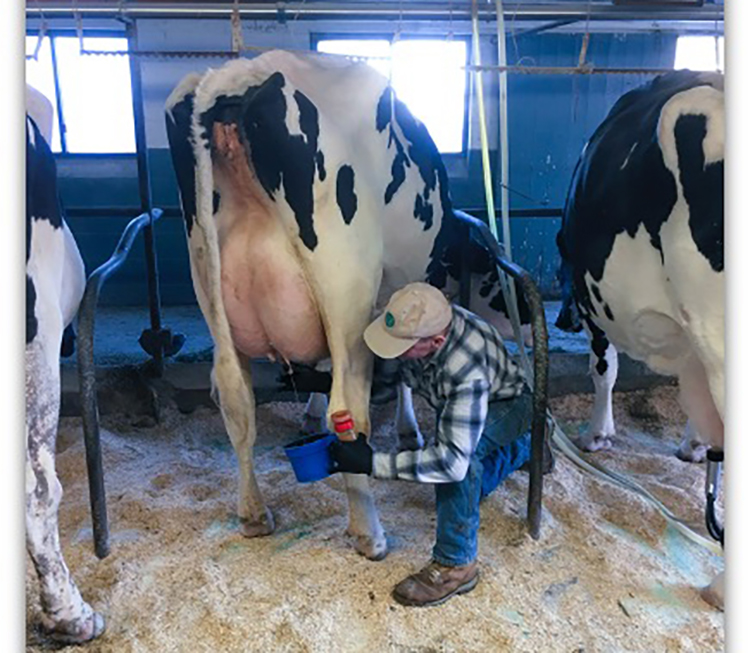
A combination of factors contributes to high-quality milk, but for New York dairy farmer Jim Davenport, he believes a low somatic cell count begins at the teat level.
“Milk quality issues inside the teat start with what’s on the teat,” he said. Davenport shared the strategies used on his farm in the March Hoard’s Dairyman webinar, “Clean cows make clean milk.”
Davenport’s dairy is located near Ancramdale, N.Y., just two hours north of New York City. His herd of 70 registered Holsteins and a few registered Ayrshires averages 86 pounds of milk, with 4.1% fat and 3.2% protein. The cows are milked twice a day in their tie stall barn, and their average somatic cell count for 2020 was 33,583 cells per milliliter (mL).
The path to clean teats starts with clean cows. Their cows are housed on foam mats covered with kiln-dried pine sawdust, and the backs of the stalls are dusted with hydrated lime.
“We spend way too much on bedding but it does get us results,” he shared. “The teat is always pretty clean, and that is the important part, as that is what contacts the milking machine.”
They use a hoe to carefully clean stalls and pull back bedding several times a day. He said that gutter grates also help to keep cows’ tails out of the manure and, in turn, maintain cleaner cows.
“Our goal is to attach milking units to perfectly clean teats,” he said. “The teats should be as clean before the machine goes on as after.”
When it comes to sanitizing the teats, Davenport emphasized the importance of giving dip a clean and dry teat dip to sanitize. He shared that his motto is, “Ask not what your teat dip can do for you, but what you can do for your teat dip.”
He said they use a 0.5% iodine solution for pre- and postdipping, and they apply it generously. “The target is to cover every part of the teat that enters the milking liner,” he said.
Davenport also credits a balanced ration as part of the milk quality equation. This includes high-quality forage and plenty of microbial protein.
“Try to get the right feed into the cow, try to keep them really clean, and honestly, I think that’s most of the battle,” Davenport said.
This commitment to producing high-quality milk has earned Davenport the National Mastitis Council’s Platinum Award for milk quality six times, more than any other farm in the country. To learn more, listen to the March Hoard’s Dairyman webinar, “Clean cows make clean milk.” The webinar was sponsored by Ozolea.








